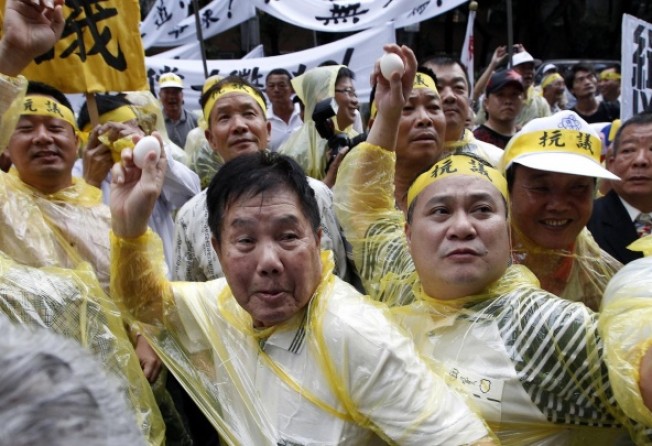Beijing caught in the crossfire over killing of Taiwanese fisherman
As dispute about fisherman's killing escalates, Beijing faces a tricky diplomatic balancing act over how far it goes in its support for Taipei

A diplomatic dispute between Manila and Taipei, triggered by the killing of a Taiwanese fisherman by the Philippine coastguard, has presented Beijing with a dilemma.
Should it take firm action to back up the island or stick to verbal condemnation?
There is rising public sentiment on both sides of the strait that Taiwan and the mainland should team up to exert pressure on the Philippines. But both sides are acutely aware that such a move would drag them into the controversial "one-China" question and trigger a backlash, not least for the Beijing-friendly government in Taipei, analysts say.
In a sign of Beijing's intention to support Taiwan, State Council Taiwan Affairs Office spokesman Yang Yi said it was an "obligation" for the mainland to protect the safety and interests of Taiwanese compatriots.
"The mainland supports all efforts to protect the rights and interests of fishermen from both sides," Yang said, answering a question on cross-strait co-operation in the South China Sea at a press briefing yesterday.
"We have demanded that the Philippine side take the case seriously, find out the truth as quickly as possible and punish those responsible."
Analysts on both sides of the strait say Beijing will back up its words with firm action - such as strengthening its patrols in the South China Sea - only at Taipei's request. But such a scenario is unlikely in the present circumstances, they say.
Taipei-based political commentator Wang Hsing-ching - better known by his pseudonym Nan Fangshuo - says the Philippines has put Taiwan in an awkward position by raising the "one-China" policy.
Philippine President Benigno Aquino said only Manila's Economic and Cultural Office, the Philippines' de facto diplomatic mission in Taiwan, could handle the incident because Manila does not recognise the Republic of China, Taiwan's official name.
He therefore rejected Taipei's request for a formal apology directly to the government.
Wang said: "It would be very embarrassing if Manila offered the apology to Beijing instead of Taipei, and that might be taken as a sign that Taipei accepts the 'one-China' policy.
"And it would be difficult for Taipei to negotiate with Manila over fisheries deals and other sorts of agreement."
Chang Ling-chen, a political scientist at the National Taiwan University, said Beijing's options were limited because "Taiwan will not ask for mainland help". She said the scenario was similar to the dispute over the East China Sea. Calls by mainland activists for joint efforts with Taiwan to step up displays of sovereignty around the Japanese-administered Diaoyu Islands received a cold response from Taipei.
Both Taipei and Beijing claim the islands. Chang said: "President Ma Ying-jeou cannot afford to be accused of being pro-unification with the mainland." Ma has faced criticism from Taiwan's opposition Democratic Progressive Party for deepening ties with the mainland. Unilateral action by Beijing to exert pressure to Manila would trigger concerns from Washington and allegations that China was stirring up tensions, Chang added.
Liu Guoshen , head of Xiamen University's Taiwan Research Institute, said future developments would dictate whether Beijing adopted stronger measures.
But he added: "It is not a situation in which you can do what you want. Beijing needs to take into account various factors, and consensus with Taiwan is necessary before deciding what to do." Professor Xu Bodong , director of Beijing Union University's Taiwan Institute, expects Beijing to offer discreet support for Taiwan's imposition of sanctions on the Philippines.
"The mainland will not openly say it is taking action because it supports Taiwan," he said. "The situation facing the mainland is that it has to find a way that is acceptable to the Ma Ying-jeou administration, but can effectively push Manila."
The incident is delicate for Beijing because effective involvement will add to the momentum for closer cross-strait ties.
"But the mainland will be criticised for not showing sufficient support to Taiwan if the issue is not properly handled," he said.